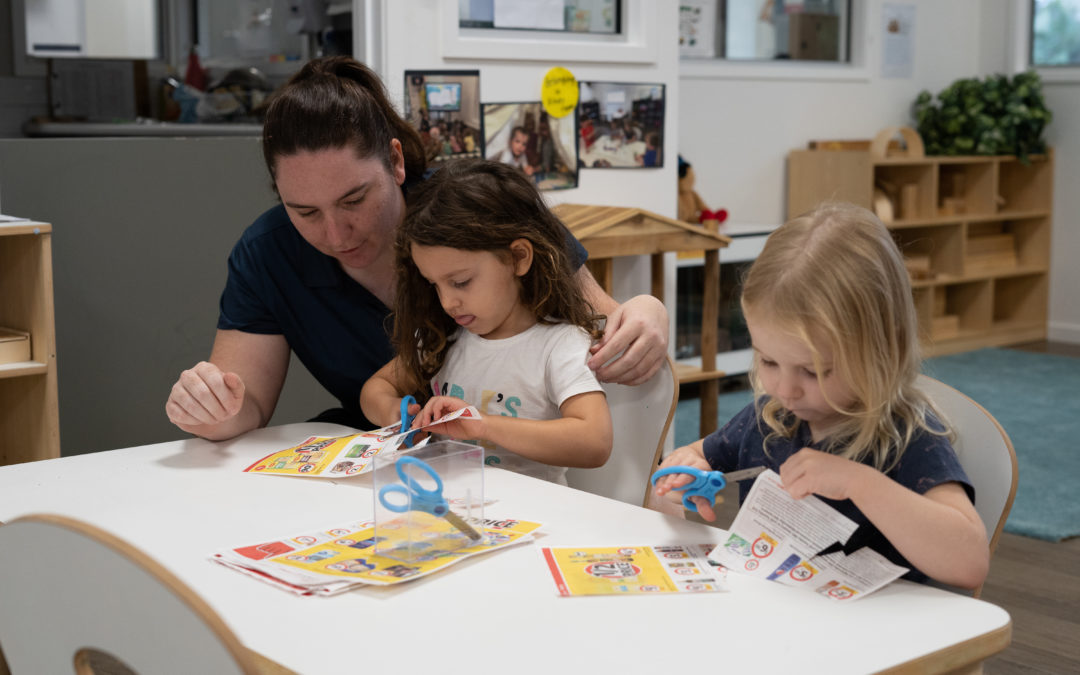Supporting your child in readiness for school. This is a big topic and one that can be very contentious!
School readiness can be defined as a measure of the knowledge, skills and behaviours that enable children to participate and succeed in school. What makes this statement tricky is our knowledge of our own children, and that they develop at their own pace which is not dependent on how many days they have been on this earth – that’s why its so tricky!
While we can’t ready schools for your children, in childcare we can try our best to ready for your children for school. One of the perks of offering kindergarten programs in long day care settings, is that educators spend more time with your child. We know and understand your child as an individual, and we like to think we know more about their world and how it impacts on their learning and development.
Early childhood educators will understand and work with the knowledge that school readiness is about the development of the ‘whole child’ – more than being able to read, write, and do up their shoelaces before starting school. We know from our work with children that children will struggle with the concept of school if they cannot communicate their needs or get along with other children or follow instructions. We know through research and experience that there are certain characteristics and traits that identify when children are ready to transition to school. Below are some characteristics we look for to help us see if your child is developmentally ready for school.
Social and Emotional Readiness
- Children need well-developed social skills to be able to flourish in the busy school environment. They need the skills to:
- separate willingly from families to start the day,
- make friends and play cooperatively,
- recognise and attempt conflict resolution when needed,
- persist when something is difficult or frustrating,
- follow simple rules,
- display increasing independence skills.
It’s a big jump going from childcare to school – the expectations are completely different and not altogether developmentally appropriate. The research here is clear – children who start school later when they are developmentally ready do better in school. There is a rise in the term ‘school readiness programs’ because this appeals to parents – after all who doesn’t want the best start at life for their child. It’s important to remember that under 7 years of age, children learn best through PLAY – either at home or at day care.
There is never any ‘one size fits all’ approach to starting school. Every child is an individual and has their own approach to learning. If you are concerned about their ‘readiness’ speak to your child’s educator or your GP who will be able to provide more advice. Please remember that as your little one starts their schooling journey you are still their number one teacher. Also avoid comparing your child to other children are all unique miracles and grow and development together with learning is not a linear thing. It kind of happens in bursts, relax, and allow Mother Nature to do what she has been doing since time began. The number one thing that helps children to thrive and flourish is to be strongly attached and bonded to people who love them unconditionally and ferociously no matter what.
If you have any questions, feel free to get in touch with us!


Recent Comments